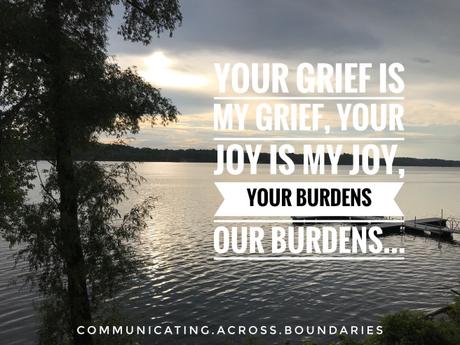
Last night I went to an Iftar celebration. It was sponsored by the Greater Boston Muslim Health Initiative - a group that periodically meets to focus on specific health needs of the Muslim community in the area. It was an eclectic group of people, each of us with strengths in different areas, community members and advocates.
And of course - Nabra's death came up. You may not know the story. Nabra Hassanen was a 17 year-old who lived in Northern Virginia. Early on Sunday morning, Nabra prematurely lost her life to a man filled with rage and bent on destroying life. She was assaulted and beaten with a bat, her body left in a pond to be found by law enforcement a few hours later.
Nabra had celebrated a Ramadan meal with friends and was on her way to the mosque with the same group of friends when the incident occurred.
Seventeen. Muslim. A young woman. A person of color. Now dead.
A death like this makes no sense - indeed it is put into the album for the unexplainable. Is it road rage? Is it a hate crime? No matter what you call it, it won't bring Nabra's life back. She's gone - gone way too soon.
A song in the old musical South Pacific unwillingly goes through my head:
You've got to be carefully taught.
You've got to be taught to be afraid
Of people whose eyes are oddly made,
And people whose skin is a diff'rent shade,
You've got to be carefully taught.
You've got to be taught before it's too late,
Before you are six or seven or eight,
To hate all the people your relatives hate,
You've got to be carefully taught!
Taught to be afraid. Taught to hate. Taught to kill. Taught to think of people as less than. Because when you are carefully taught these things, you can treat people as you like without conscience or remorse.
What might our world look like if we were taught to see the image of God in each person? If we were aware of how bound together we are in our life journey? What might it look like if we saw people as God sees them - beloved and worthy? If we changed our worldview from glorifying the individual to humbly loving collective humanity.
My heart weeps for Nabra's family and community. This assault must feel so big and so awful, so personal during the month of Ramadan.
My heart also weeps for the cancer of prejudice and racism in our society, that we are so carefully taught to despise and hate, without even being aware.
And even as I write this, I know I am not innocent. For any time I ignore others, anytime I dismiss another as unworthy, I'm doing the same thing. The consequences are less, the action and heart attitude is the same. When we deem people as unworthy, we can do whatever we like to them.
How can we change this societal narrative? How can we begin to see ourselves as integrally connected, bound together in this journey? Your grief is my grief, your sin is my sin, your joy my joy, your burdens, my burdens.
How can we rid ourselves of what we have been carefully taught and soften our hearts?
In the Eastern Orthodox Church, monasticism is alive and well. Contrary to what many believe, monks and nuns do not merely seclude themselves from the world. Instead, they align themselves with the world through prayer. They pray for the world. They are "intentional in living this mystery of our mystical unity and responsibility."*
St. Isaac the Syrian writes: " and what is a merciful heart? It is the heart's burning for the sake of the entire creation, for men, for birds, for animals, for demons, and for every created thing; and by the recollection and sight of them the eyes of merciful men pour forth abundant tears. From the strong and vehement mercy that grubs his heart and from his great compassion, his heart is humbled and he cannot bear to hear if or see any injury or slight suffering of anything in creation. For this reason he offers up tearful prayer continually..."
What more is there to say, but that God would "unteach" us that which we have been carefully taught; that he would give us hearts of mercy instead of stone.
And that we would take seriously our mystical connection and our mutual responsibility and act upon it.
*Scott Cairns in The End of Suffering

